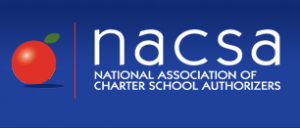 State and district education officials are heading back from Miami, where the National Association of Charter School Authorizers is wrapping up its annual conference.
State and district education officials are heading back from Miami, where the National Association of Charter School Authorizers is wrapping up its annual conference.
The group represents the school districts, nonprofits and other organizations that sponsor and regulate charter schools.
Improving charter school authorizing might not pack as much sizzle as other education policy issues, but it’s getting increased attention from people who want to improve the quality of the education system as a whole. And it’s definitely relevant to Florida’s debates over charter school accountability.
In Florida, authorizers are basically synonymous with school districts, but other states allow nonprofit organizations to sponsor charters, and 17 states have active, statewide charter school authorizing bodies.
Creating a statewide charter school authorizer is part of NACSA’s recently released package of policy recommendations. The goal, according to the group, is to give charters at least two potential authorizers to choose from in each jurisdiction. Courts, however, have blocked efforts to create a statewide authorizing body in Florida.
The authorizers group also recommends setting a floor for charter performance by automatically closing charters that fail to meet minimum academic standards. Florida, which requires most charter schools to close if they receive two F’s in a row, is one of just seven states with “default closure” provisions on the books – a topic covered in this Education Week dispatch from the NACSA conference.
The group’s policy brief recommends creating exceptions to the automatic closure rule for some schools that cater to struggling students.
It also recommends creating standards for schools looking to have their charters renewed, and setting accountability standards for authorizers themselves. The full set of policy papers can be found here.


